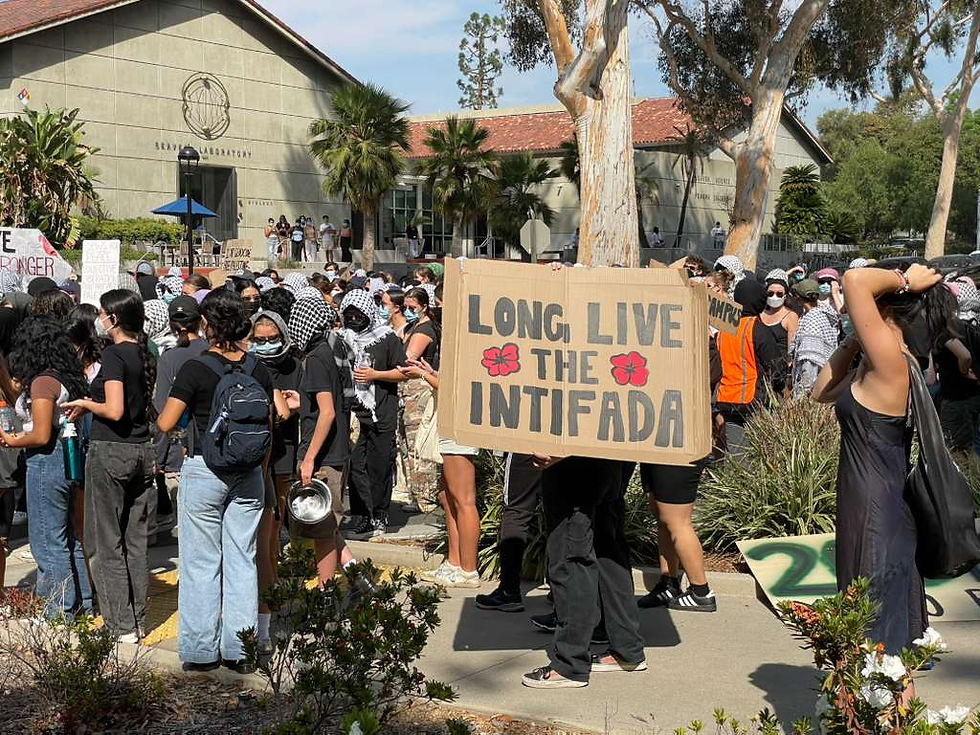Pomona Changes Amendment Allowing Administration Removal of Student Club Officers
- The Claremont Independent

- Oct 14, 2020
- 3 min read
In an email sent to club leaders earlier today, the administration at Pomona College clarified that Amendment XII — an amendment that all registered student clubs have to adopt into their club constitutions — which previously allowed the college to remove club officers at-will, has been changed. Prior to the change, the Amendment stated that the Assistant Director of the Smith Campus Center could remove officers for reasons including, but not limited to, “inappropriate” behavior or language not covered by College policies, as well as advocating illegal actions including civil disobedience.
After reporting from the Independent and a letter from the Foundation for Individual Rights in Education (FIRE), John Lopes, the Assistant Director of the Smith Campus Center and Student programs, wrote to club leaders that “there was an unintended miscommunication in the requirements for student organization constitutions, specifically for Article XII regarding the removal of officers from a club.”
FIRE wrote that the previous amendment was “impermissibly vague, as whether or not speech is ‘inappropriate’ is a subjective inquiry. Regulations on speech must ‘give a person of ordinary intelligence a reasonable opportunity to know what is prohibited, so that he may act accordingly.’ The lack of objective criteria as to what speech is or is not appropriate leaves Pomona’s administration with unfettered discretion to punish any speech it does not believe to be appropriate. If that broad grant of authority were not enough, the regulation removes any restraint whatsoever, providing that the ‘[g]rounds for removal’ are ‘not limited to’ the enumerated categories.”
FIRE also noted that the previous version of the amendment violated several Pomona College policies committing to free expression and California’s Leonard Law, which applies the First Amendment to private institutions of higher education. Additionally, the advocacy of illegal activities, such as civil disobedience, is considered protected speech.
The email to club leaders stated that “[t]he SCC [Smith Campus Center] administrative staff have never removed an officer from a student organization, nor would we ever do so. Student organizations have the right to choose and maintain their own leaders. The sentence should have been worded to indicate that the Assistant Director has the authority to approve of a removal of an officer if initiated and voted on by student club members.”
The revised amendment is to be included in club constitutions at student organizations’ “earliest convenience.”
The new amendment reads below:
Removal of Officers:
An officer may be removed only after every effort has been made by all parties involved to resolve the situation. If the situation cannot be resolved, then an officer can be removed from their position by a 2/3 vote of all club members. Approval to hold such a vote must first be obtained from the Smith Campus Center Assistant Director in charge of student organizations.
Grounds for removal of an officer include, but are not limited to:
Behavior that violates College policy and/or procedure
Significant and persistent failure to adhere to organization bylaws or interference with organization goals, procedures, or mission
Direct knowledge of hazing incidents and/or failure to report such incidents
Behavior resulting in unreasonable and/or unnecessary risk for students
Removal of Members:
In very rare cases, a student may be removed from membership for violating college policies or organization bylaws. A member may be removed only after every effort has been made by all parties involved to resolve the situation. A 3/4 vote of all officers is required to remove a student from membership. All requests to remove a student from membership must be presented to and approved by the Smith Campus Center Assistant Director prior to removal.
Grounds for removal from membership include, but are not limited to:
Behavior that violates College policy and/or procedure
Significant and persistent interference with organization goals, procedures, or mission
Direct knowledge of hazing incidents and/or failure to report such incidents
Behavior resulting in unreasonable and/or unnecessary risk for students
.png)



Comments